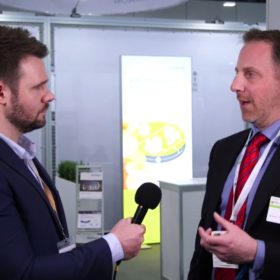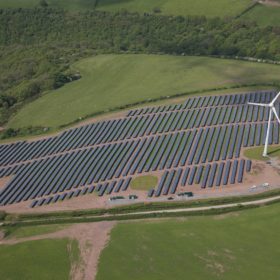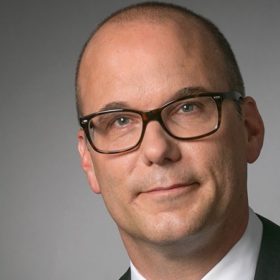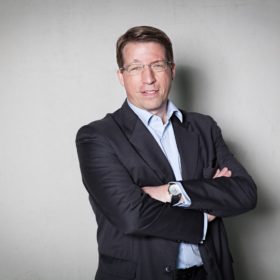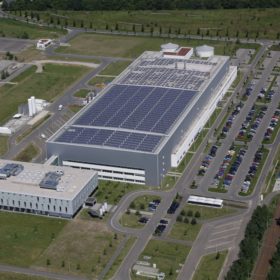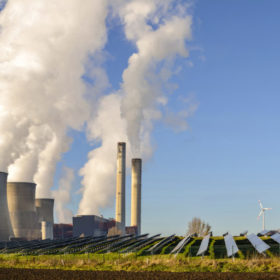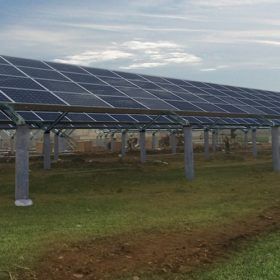Video interview: Will lithium-ion’s battery dominance soon end?
At the recent Energy Storage Europe exhibition in Düsseldorf, Florian Mayr, partner at renewable energy advisory firm Apricum, explained how lithium-ion technologies got a jump on other battery forms in the stationary storage world, but its dominance should not be taken for granted.
SolarWorld files for insolvency – again
Roughly seven months after its new beginning, the German solar PV manufacturer has again filed for insolvency at the District Court of Bonn – the second time in one year. SolarWorld blames the planned phasing out of anti-dumping measures by the EU Commission against Chinese competition and the further drop in prices.
Vattenfall: “PV will lead the race”
For a long time, the Swedish power utility has primarily focused on hydro and wind power when it comes to renewables. But in recent months, the number of solar PV and storage projects has significantly increased. This was reason enough for pv magazine to talk with Claus Wattendrup, head of Vattenfall’s Solar and Batteries Business Unit, about the utility’s concrete plans.
Manz dismisses CFO
A few days after announcing a record turnover and positive EBIT, the German PV equipment provider has now dismissed its CFO, Gunnar Voss von Dahlen, effective immediately. The company said his departure was due to divergent opinions about its strategic direction.
Energy storage-as-a-service: The hottest game in town?
Alexander Schönfeldt of energy storage specialists, Younicos examines the growing trend of energy storage-as-a-service, and explains why the sector is growing at such a rate.
Meyer Burger reports €67.8 million loss for fiscal 2017
The Swiss PV equipment manufacturer recorded a loss of around €68 million last year. Although Meyer Burger was able to slightly increase sales, the EBITDA margin was below 3%. This year, the company is aiming for an EBITDA margin of 10%, in order to return to profitability.
Astronergy announces upgrades to German production line
Module manufacturer Astronergy has announced a series of upgrades contributing to an overall production efficiency increase of 40% at one of its production lines in Frankfurt (Oder), close to Germany’s border with Poland.
PV has the lowest LCOE in Germany, finds Fraunhofer ISE
According to Fraunhofer ISE experts, PV’s Levelized Cost of Energy (LCOE) currently ranges between €0.0371 and €0.1154 per kWh in Germany. The potential for further cost reductions is vast, the researchers add.
Schletter files for insolvency under self-administration
The German PV company aims to finalize the proceedings, which are possible under German insolvency law since the summer of 2012. Business operations are expected to run at full capacity.
Eon wants to further develop solar DG
In a short chat with pv magazine, the head of Eon’s solar business in Germany, Sebastian Eisenberg has described how the German utility is planning to further develop its PV activities after the company’s recent plan to buy a majority stake in Innogy. The deal, in fact, envisages redistributing operations so that RWE focuses on the renewable energy business, while energy networks and customer solutions would be the responsibility of Eon.
